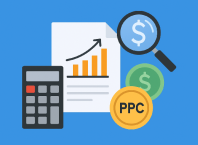Are you interested in learning about proxies and how useful they are? Have you heard the term residential proxies and are you trying to determine their pros and cons? If so, you’ve definitely landed on the right article.
Contents [show]
An In-Depth Look at Proxies
A proxy is a computer that sits between you, the end user, and the internet. Without it, any data that flows to a website and back transfers directly, which means that your identity and location are unmasked.
Now, let’s look at what happens when you surf the internet using a proxy. This time, the details of the proxy replace yours. Your actual IP address, location, and identity aren’t known by the destination website. It’s like wearing a cloak, much like Harry Potter’s, to remain invisible.
Site owners like tracking their users to collect data, either for marketing purposes or more illicit reasons. People use proxies because privacy is something they want to protect. They do not want to be a statistic. If websites cannot recognize you, your surfing activities remain personal, as they should be.
Proxy servers also host firewalls and regulate web traffic. Sometimes, they bypass content filters or function to share internet connections. Not all proxies work in similar ways, and there are many different types, two popular ones being residential and data center proxies. This text will focus on the former.
What Are Residential IPs?
Whenever you register for an internet connection and set it up, an ISP assigns your home with a residential IP address. When people talk about residential IPs, it means that the address is tied to a physical location. This means that whenever your laptop or mobile device connects to the internet using your home Wi-Fi, the address shown is your residential IP.
You can gain a lot of information by knowing someone’s IP. For example, you can tell something about their shopping habits, where they live, and with additional techniques, even find out their social security number.
Residential Proxies
Now, let’s move on to residential proxies. When you use a residential proxy as an intermediary to browse the internet, you’re essentially borrowing its IP address. Your information remains hidden, and any tracking that occurs will record that proxy’s IP. How do you achieve this? Well, you’d approach a residential proxy provider and select a service that fits your needs.
Static and Rotating Residential Proxies
Residential proxies fall into two categories: static and rotating. The former hides your actual IP address and replaces it with a single residential IP. As its name denotes, this type of proxy’s address stays consistent as long as you’re connecting through the same computer. This is useful for social media websites that utilize profiles with IP addresses.
Conversely, a rotating residential proxy masks your real IP with a pool of addresses. This means that your proxy address will keep on changing depending on availability. Certain providers will allow you to limit the frequency of these rotations.
Residential proxies can be free or paid. Always be aware that free proxies still come with a hidden cost. They can be extremely slow since they are public. With paid proxies, you are guaranteed authenticity and reliability.
Benefits of Residential Proxies
This article already mentions some of the benefits of using residential proxies, but let’s look at them in detail.
Anonymous Surfing
By having a proxy as a middleman, you can circumvent any tracking and access geo-restricted data. Websites will not be aware that you are using a proxy, which means total anonymity.
Security
Your data is precious and is the target of hackers and criminals. A proxy will protect your information and keep it secure from malicious attacks.
Easy Implementation
Proxies are not challenging to set up. Once you register with a provider, all you have to do is connect to your preferred proxy and start surfing.
Versatility and Reliability
You can use proxies for price comparisons, to spy on your business competitors, or handle your multiple social media accounts. There are so many use cases for residential proxies, and your connection remains stable as long as the proxy computer remains online.
Downsides of Residential Proxies
Unfortunately, residential proxies aren’t perfect. They do come with these disadvantages:
Slow Connections
If your proxy’s internet speed is slow, that will also affect your browsing.
Limited
There aren’t many residential proxy providers on the web, as not everyone feels like sharing their bandwidth with strangers.
Can Be Expensive
Because your choices are limited when it comes to residential proxies, whatever you find can be quite an investment, albeit a worthwhile one.
Summary
Proxies aren’t just tools for techies. They’re great for everyday internet users like you and me. Protecting your identity and stopping companies from discovering your shopping habits are more important than ever. As long as you peruse sites regularly, proxies are the way to go.












